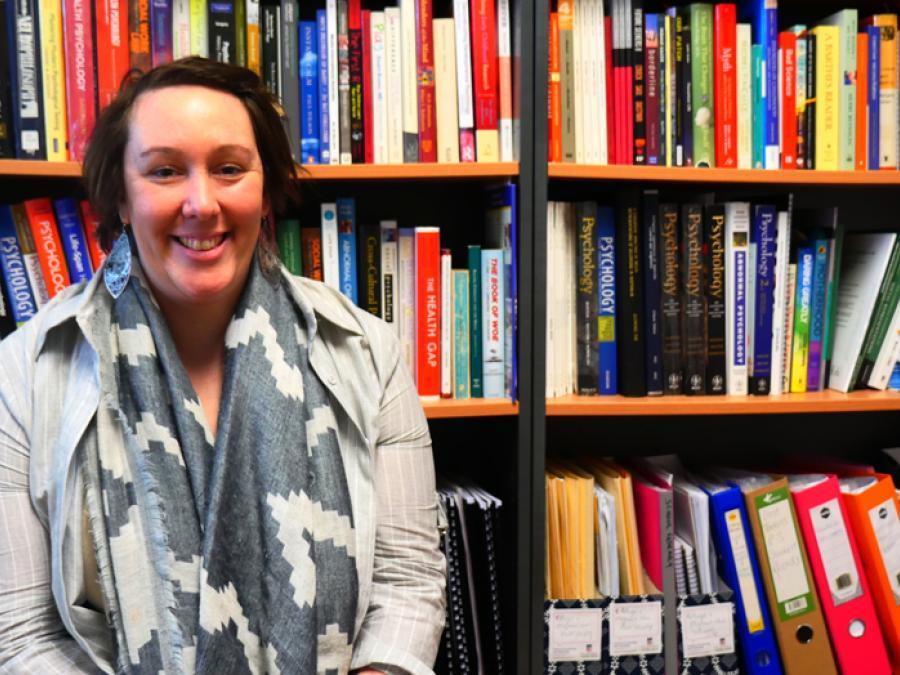Exploring mental health and wellbeing amongst vulnerable groups

Senior Academic Dr Clemence Due
Senior academic, mother of two, refugee advocate with a passion for social justice, child psychology and cross-cultural psychology—these are just a few fields revolving around Dr Clemence Due.
“My main interest is in undertaking research for vulnerable people in the community who are overlooked in mainstream psychological research,” says Clemence. “I’m particularly interested in people with refugee backgrounds.”
Clemence is currently working on a range of disparate projects involving refugees, extending to dealing with the implications of parents who’ve experienced pregnancy loss in non-normative family types, such as single parents and lesbian couples. She also has research underway investigating access to primary health services for those with psychological distress; and she teaches in the first, second and third years of the Bachelor of Psychological Science degree.
As a relatively early-career researcher with such a wide scope of interests, Clemence says it can be hard to pitch her overall research narrative, so she sums it up as “looking at mental health and wellbeing for vulnerable groups”.
“As one example of that, I recently did a presentation at Novita Children’s Services on a body of research around families raising children with autism spectrum disorder. It was particularly looking at their psycho-social outcomes, their access to support and mental health care services, and also culturally diverse understandings of autism.”
Clemence is aware that bridging these concerns across different cultures is a sensitive and delicate task, and she has a particular interest in finding effective ways to implement care without damaging cultural ties.
“This is really important, because it raises issues that aren’t well covered in the literature. For example, if you’re working with a child who is non-verbal and comes from a non-English speaking background, and then you bring in a speech pathologist and teach the child to speak English, it can create a bit of a chasm between them and their family who can’t speak English very well. You can easily get into generational conflicts.”
In addition to her professional commitments, Clemence has two children of her own to look after. Far from feeling swamped, however, she uses the time crunch to her advantage.
“Sometimes with the kids I actually feel I’m more productive. With such a limited amount of time you can’t procrastinate—you just have to get it done.”
Clemence’s work has also indirectly expanded her children’s horizons. “In 2016 I received the Dependent Travel Award, which enabled me to take my kids to some international conferences in Japan. The kids absolutely loved it, and it was really nice for me to be able to get out and meet the big names in the field.”
Clemence says people unsure of their career path shouldn’t worry too much about having a definitive goal in mind.
“I started off doing biomedical science to be a doctor and go and save the world. That didn’t work out, which I like telling students now, because there’s so much pressure on them, and they get a bit upset when they don’t do so well.
“That’s when I say, ‘Well my transcript didn’t look so great for my first year of uni either’. But from there I changed to a double degree in art science, and as part of that I did a psychology subject to get away from biomedical science, and I found that I just loved it. So I majored in psych and English and did my honours in psych; and now I love research. I find it fascinating."
